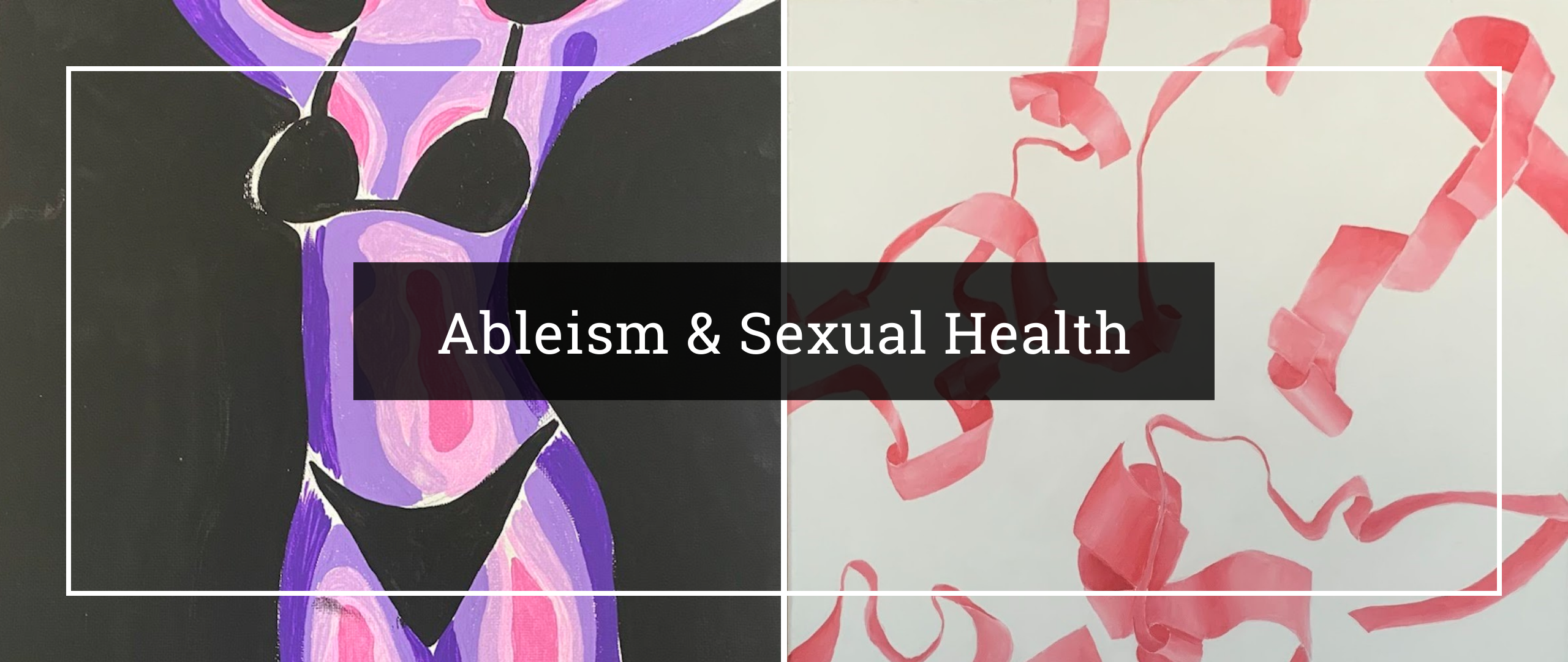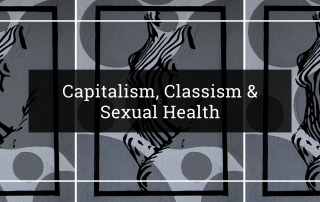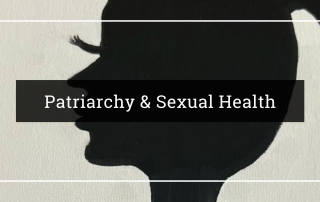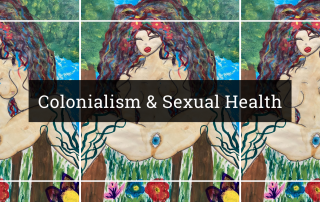
Written and researched by Tomei Kuehl
Accompanying artworks selected in partnership with Talia Cardin, Youth-facilitator to the Youth Sexual Health Program Board
Ableism:
“A system that places value on people’s bodies and minds based on societally constructed ideas of normality, intelligence, excellence, desirability, and productivity. These constructed ideas are deeply rooted in anti-Blackness, eugenics, misogyny, colonialism, imperialism, and capitalism”
– Definition by Talila “TL” Lewis
“Sometimes, people say that disabled people have more important things to focus on than their sex lives. I don’t agree. I think that talking about sex and disability is so necessary. But, I do think it can be exhausting because of the ableism we experience when talking about it.”
– Definition by Andrew Gurza – Disability After Dark Podcast
At the height of the eugenics movement, more than thirty states passed nonconsensual sterilization laws, deeming people with disabilities and other marginalized communities socially inadequate to procreate (Powell, 2021). In 1927, the U.S. Supreme Court upheld a state’s right to forcibly sterilize a person considered “unfit” to procreate. Buck v. Bell allowed the state to forcibly sterilize people with mental illnesses, physical and developmental disabilities, and other marginalized identities. Buck v Bell has never been overturned (Disability Justice, 2022).
In 1990, the Americans with Disabilities Act (ADA) was signed into law. This federally codified disability as a category of discrimination and laid the foundation for sexual and reproductive health and rights, including workplace protections for pregnant people and people living with HIV (Duquette and Crockett, 2019). Despite this legislation, women with disabilities have fewer Pap tests and mammograms than women who do not have disabilities, indicating continued disparities in terms of healthcare access (National Council on Disability, 2008). Schools often exclude students with disabilities from the sexual health education offered at their school. For women with intellectual disabilities, not receiving sex education and information result in higher rates of sexually transmitted diseases, victimization of sexual abuse, and limited ability to report those abuses due to lack of knowledge (Powell, R.M. & Stein, M.A., 2016). Despite legislative wins, access is not afforded to everyone, and ableism continues to be a barrier.
References
- Disability Justice. The Right to Self-Determination: Freedom from Involuntary Sterilization. https://disabilityjustice.org/right-to-self-determination-freedom-from-involuntary-sterilization/
- Powell, R. (2021, October 18) From Carrie Buck to Britney Spears: Strategies for Disrupting the Ongoing Reproductive Oppression of Disabled People. Virginia Law Review
- Powell, R.M. & Stein, M.A., Persons with Disabilities and Their Sexual, Reproductive, and Parenting Rights: An International and Comparative Analysis, 11 Frontiers L. China 53, 57–58 (2016) (explaining the implications of disabled people not receiving sexuality education).




